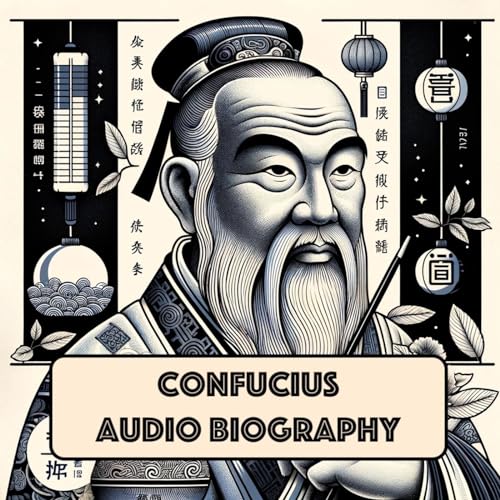Once upon a time, in the ancient land of Lu (present-day Shandong Province, China), a baby boy was born. Little did his parents know that this tiny bundle of joy would grow up to become one of the most influential philosophers in human history. They named him Kong Qiu, but we know him better as Confucius.Now, I know what you're thinking. "Confucius? Isn't he that old, boring guy who said a bunch of stuff about filial piety and being nice to people?" Well, my friend, you're in for a surprise. Confucius was a lot more than just a wise old sage. He was a rebel, a trailblazer, and a bit of a troublemaker. But more on that later.Young Confucius grew up in a time of great political turmoil. The once-mighty Zhou Dynasty was in decline, and the land was divided into warring states, each vying for power and control. It was a tough time to be alive, but Confucius had a few things going for him.First of all, he was a descendant of the royal house of Shang, which meant he had some serious blue blood flowing through his veins. Secondly, he was a pretty bright kid. He loved learning and spent hours poring over ancient texts and studying the wisdom of the past.But life wasn't all sunshine and rainbows for Confucius. His father died when he was just three years old, leaving his mother to raise him on her own. They were poor, and Confucius had to work hard to help support his family. He took on odd jobs like herding sheep and working as a bookkeeper, but he never lost his love for learning.When Confucius was in his twenties, he decided it was time to strike out on his own. He packed up his few belongings and set off on a journey across China, seeking wisdom and enlightenment. He visited the courts of various rulers, hoping to find a worthy patron who would support his ideas and help him put them into practice.But Confucius quickly realized that the world was not ready for his radical ideas. He preached about the importance of virtue, compassion, and good governance, but most of the rulers he met were more interested in power, wealth, and warfare. They didn't want to hear about ethics and morality; they wanted to know how to crush their enemies and expand their territories.Undeterred, Confucius kept wandering and teaching. He gathered a group of devoted followers who hung on his every word and helped spread his message far and wide. They became known as the Confucians, and they would go on to shape the course of Chinese history for centuries to come.One of the most important legacies of Confucius is a collection of his sayings and teachings known as the Analects. This book is a treasure trove of wisdom, filled with insights on everything from politics and ethics to education and personal growth.But here's the thing: Confucius never actually wrote the Analects. In fact, he never wrote anything at all. His teachings were passed down orally by his followers, who compiled them into a book after his death. So, in a sense, the Analects are like a game of telephone, with each generation adding their own spin and interpretation to the original message.That's not to say that the Analects are not valuable or authentic. On the contrary, they provide a fascinating glimpse into the mind of one of history's greatest thinkers. But it's important to remember that they are not the literal words of Confucius, but rather a reflection of how his ideas were understood and practiced by later generations.One of the key concepts in Confucian philosophy is the idea of the Five Relationships. These are the basic building blocks of society, and they govern the way people interact with each other. The Five Relationships are:1. Ruler and Subject2. Father and Son3. Husband and Wife4. Elder Brother and Younger Brother5. Friend and FriendAccording to Confucius, each of these relationships has its own set of duties and obligations. The ruler must be just and benevolent, the subject must be loyal and obedient. The father must be loving and protective, the son must be filial and respectful. And so on.Now, I know what you're thinking. "That sounds pretty hierarchical and patriarchal." And you're not wrong. Confucian philosophy does have its problematic aspects, particularly when it comes to gender roles and social inequality. But it's important to understand these ideas in their historical context, and to recognize that they were a product of their time.Another key concept in Confucian philosophy is the Rectification of Names. This sounds like some kind of fancy linguistic theory, but it's actually pretty simple. Basically, Confucius believed that language was a powerful tool for shaping reality, and that it was important to use words correctly and precisely.For example, if you call someone a "king," that means they have certain duties and responsibilities. If they don't fulfill those duties, then they are not really a king, no matter what their title may be. Similarly, if you call someone a "friend," that means you have certain obligations towards them, ...



